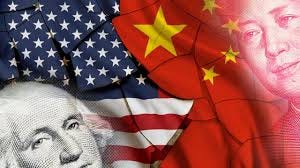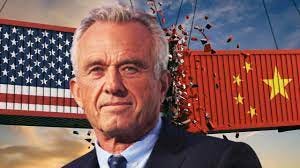Robert F. Kennedy Jr. displays a profound distrust of China throughout his 2023 book, The Wuhan Cover-Up: And the Terrifying Bioweapons Arms Race (New York: Skyhorse Publishing). He is suspicious of China’s change of function viral research, and the connection of said research to the Chinese military and the Communist Party of China. He is suspicious of China’s “infiltration” of the Western world of medical science. And he is suspicious of American institutions and individuals that have relations with these suspicious activities.
Suspicion leads to accusation. Kennedy accuses China of covering-up the origins of the Covid-19 pandemic and of deceiving the world with respect to its intentions in the international arena.
My intention in today’s commentary is to try to eliminate suspicions and to point toward the truth with respect to China. Because, despite RFK Jr.’s stated desire to present himself as a peace candidate in the 2024 elections, his suspicions and accusat…



